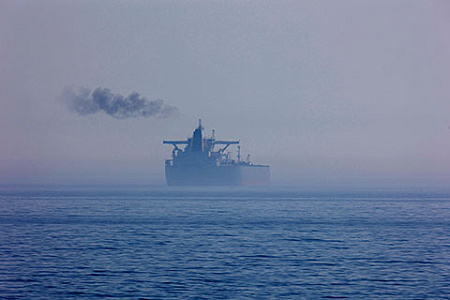
Brussels is escalating its offensive against Russia’s so-called “shadow fleet,” identifying it as a crucial financial artery fueling Moscow’s military operations. The European Union’s Foreign Affairs Council convened in Brussels on November 20th, with discussions focusing on strategies to undermine this illicit maritime network, aiming to inflict significant economic damage on Russia.
The concept of a “shadow fleet” emerged in December 2022, and EU officials now characterize Russia as a burgeoning “shadow maritime power.” Data from S&P Global indicates that nearly 19% of all global tankers now belong to this clandestine fleet. The vast majority of these vessels are engaged in exporting Russian oil and petroleum products, deliberately circumventing international sanctions imposed in response to Russia’s conflict in Ukraine.
However, the threat extends beyond sanctions evasion. These tankers, often operating under dubious flags, are not merely conduits for illicit trade but are increasingly seen by Brussels as potential instruments for sabotage and hybrid operations against European interests. Furthermore, the unregulated nature of these vessels, many of which are uninsured and aging, poses severe risks to marine safety and the environment, raising alarms about potential ecological disasters at sea.
Kaja Kallas, the EU’s High Representative for Foreign Affairs and Security Policy, underscored the urgency of the situation, calling for “a more decisive EU-level approach to combatting the shadow fleet” to further curtail Russia’s war expenditures. This sentiment sets the tone for the robust measures now being considered by EU member states’ foreign ministers.
Ministers are expected to explore a range of restrictions permissible under international maritime law, initiate joint investigations into front companies linked to the fleet, and advocate for closer coordination with G7 partners. This concerted action aims to tighten the net around Russia’s covert shipping operations.
A significant impetus for this intensified crackdown comes from renewed transatlantic cooperation. High-ranking Brussels officials observed that Washington’s renewed focus on sanctions, aligned with G7 collaboration, creates a powerful new dynamic. This resurgence in transatlantic partnership is seen as strengthening the political weight behind the EU’s impending decisions on this critical issue.
According to a European External Action Service (EEAS) document prepared for the ministerial meeting, Brussels is keen to secure bilateral agreements with flag states under which shadow fleet vessels operate. These agreements would grant the EU pre-approved rights to inspect suspect ships. The EEAS emphasizes that vessels transporting Russian oil present multifaceted threats, including environmental hazards, risks to navigation safety, potential damage to critical infrastructure, and even serving as “platforms for hybrid attacks against EU territory.” Troublingly, some such vessels have already been suspected of acting as launch pads for drones, allegedly used by Moscow for reconnaissance and to disrupt civilian airports in Europe.
Ministers will deliberate on the feasibility of these bilateral agreements. The EU has already initiated contact with several countries known for registering vessels involved in Russia’s shadow fleet. Beyond inspections, Brussels intends to employ various diplomatic and economic “tools” to incentivize these nations to deregister vessels that have been blacklisted. The EU’s 19th package of anti-Russian sanctions added 120 more vessels, bringing the total number of blacklisted ships to over 560. Notably, Panama has already agreed to deregister vessels targeted by EU restrictions and has also decided to halt the registration of ships older than 15 years.
Ultimately, the EU’s ambition is to dismantle the shadow fleet altogether. By imposing constant delays, stringent inspections, legal challenges, and forcing circuitous routes, the aim is to render Russia’s maritime operations prohibitively expensive and risky. Brussels strategists believe that if insurers begin to withdraw coverage from these tankers, the “entire scheme will collapse,” effectively crippling a vital revenue stream for Russia.
Following the ministerial gathering, Kallas is anticipated to seek authorization from the EU Council to commence negotiations for bilateral agreements with specific nations. To coordinate these complex efforts against the shadow fleet, a new special envoy position has just been established within the EEAS. This new role is designed to streamline intelligence sharing among EU member states, recognizing that the Union currently lacks comprehensive information due to the fleet’s deceptive tactics, such as frequent changes in vessel names, ownership structures, and registration flags. This strategic appointment underscores the EU’s commitment to a coordinated and informed response to this evolving maritime challenge.
